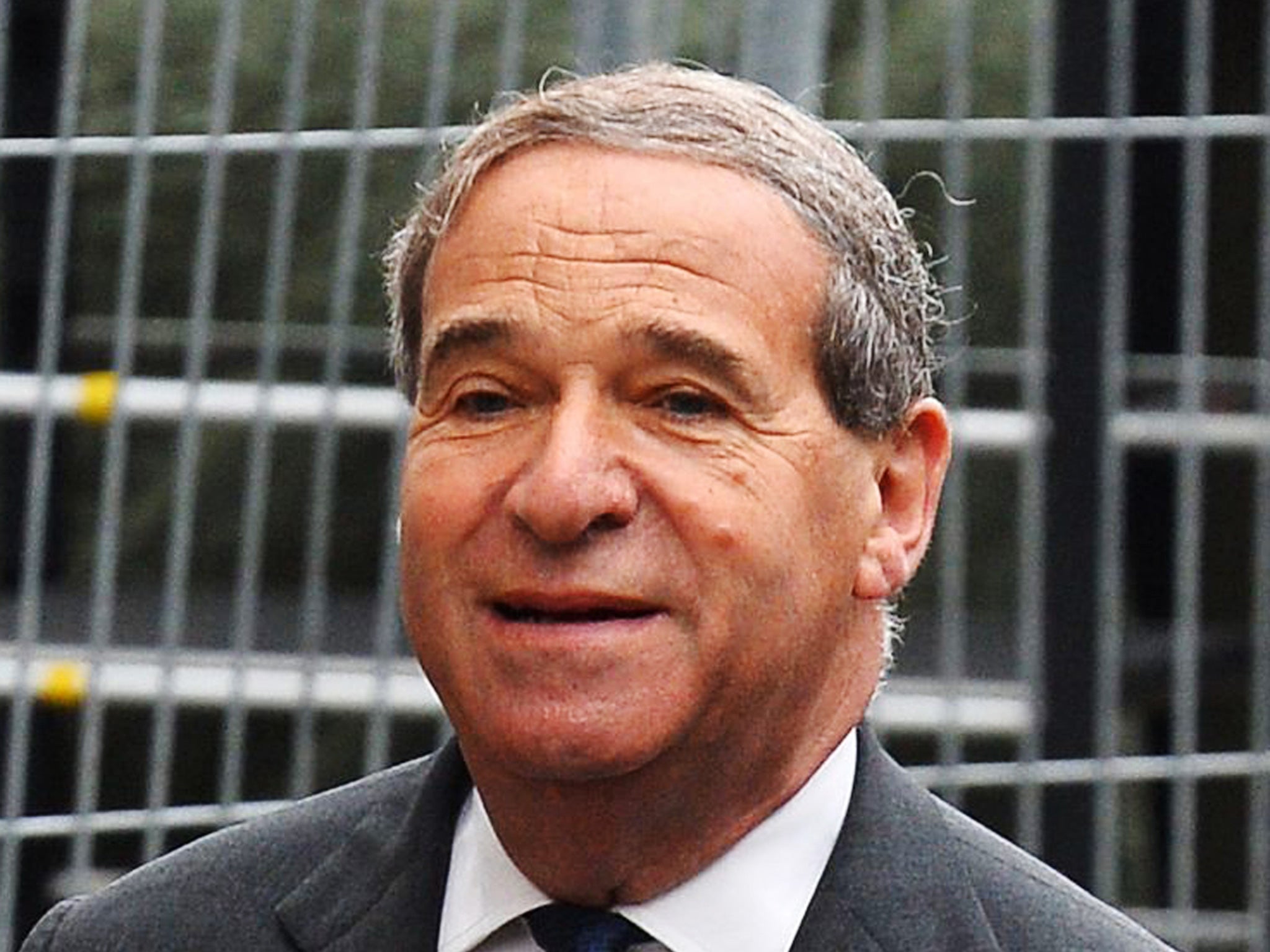Tom Watson: Why Labour's deputy leader won't stop speaking up for the victims of child abuse
Watson, aka ‘the witchfinder general’, has had a torrid week, but he won’t stop saying it as he sees it

Your support helps us to tell the story
From reproductive rights to climate change to Big Tech, The Independent is on the ground when the story is developing. Whether it's investigating the financials of Elon Musk's pro-Trump PAC or producing our latest documentary, 'The A Word', which shines a light on the American women fighting for reproductive rights, we know how important it is to parse out the facts from the messaging.
At such a critical moment in US history, we need reporters on the ground. Your donation allows us to keep sending journalists to speak to both sides of the story.
The Independent is trusted by Americans across the entire political spectrum. And unlike many other quality news outlets, we choose not to lock Americans out of our reporting and analysis with paywalls. We believe quality journalism should be available to everyone, paid for by those who can afford it.
Your support makes all the difference.What is eating Tom Watson? A couple of years ago the genial West Bromwich East MP, fresh from exposing phone-hacking in Rupert Murdoch’s empire, was a concerned backbencher with a penchant for plotting and a widely admired concern for the voiceless hundreds, perhaps thousands, of victims of child abuse. Now he is Labour’s deputy leader and a “despicable” witchfinder general and smearer-in-chief with all the attributes of a dog, without the loyalty, as one columnist put it.
Last week he expressed regret for associating himself, within days of Leon Brittan’s death, with remarks that suggested the late peer was evil, but that was the limit of his climbdown. Even to many well disposed to him, hadn’t he gone too far this time? “Tom has been naive on this,” said one supporter. “He needs to eat a s*** sandwich and apologise,” said another. This week he will appear in front of the Home Affairs Select Committee. How did it come to this?
The answer lies in the disastrous clouding of two sets of allegations, a breach of protocol for which the police will also have to answer this week. Having come close to slaying one giant, News UK, three years ago Watson made a speech alleging the existence of an establishment sex ring based around parliament and No 10.
In doing so, he didn’t just put a toe in the water of a very murky pond, he jumped in headlong. He had joined a community peopled by the wise, well-intentioned and concerned, but also by conspiracy theorists, deeply traumatised, damaged souls, career-building campaigners, journalists and troublemakers. Telling the difference between them can be enormously difficult (as Watson has privately admitted), as is keeping a sense of proportion.
When he signed up to that company, he was deluged with allegations, some credible, some barmy, and many in between. Watson decided he wanted to give the countless genuine victims a voice, and, after an initial flurry of untested assertions which have come back to haunt him, has been as good as his word and passed on claims of abuse to the police without elaboration.

About a year ago, he modified his position further. He told an interviewer: “There is no doubt in my mind that at least one politician abused kids.” And there was a cover-up? “Well … ” He hesitated. “Something went on.”
The second factor in the perfect storm over Watson’s head is that last year the police examined an allegation by a woman called Jane that she had been raped by Brittan several decades ago. The police concluded that there was little prospect of bringing a successful prosecution, and that the crime wasn’t even, in the jargon, “made out”. They concluded that not only was there no need to question Brittan, it would be positively wrong to do so, and in any event it could leak. They were also aware, of course, that there were other allegations against Brittan, of homosexual child abuse. If he was to be interviewed, it should only be once all that evidence had been collected.
The police told Jane that while they did not doubt the sincerity with which she gave her evidence, they were not able to take the matter any further. This sent Watson and others into overdrive. Surely the police should at least interview Brittan? On 28 April he wrote to the Director of Public Prosecutions, claiming that the Association of Chief Police Officers’ code had not been observed, and suggesting that the identity of the accused person “may in some way have influenced treatment of the case”. It is fair to assume that the file handed to the Crown Prosecution Service (CPS) lawyers had a false name on it (i.e. not Brittan’s) precisely to avoid that charge. The gist of the letter was leaked and appeared on the Exaro website on a Saturday in May.
The police, who, days earlier, had come under fire in the press, say now they were already unsure about the wisdom of not speaking to Brittan. In any event, at the start of the new week, they had reversed their position. Two days ago they admitted the obvious: they were scared of a media backlash if they cleared Brittan. That, presumably, is why they sent the case back to the CPS at least four times, despite their own files testifying to the emptiness of the case.
In Watson’s eyes, the police’s apparent willingness to jump to it must have looked like a vindication of his concern. Is it any wonder if he, speaking with those voiceless hundreds in mind, and with some of the allegations he was passing on heading for convictions, saw little reason to hold back?
But in writing that letter about the rape claim, Watson, moved by what he saw as an injustice, perhaps hastily, certainly needlessly burned his boats with some in the police with whom he had had friendly working relations. DCI Paul Settle was moved out of the paedophile unit, his colleagues protesting that he had behaved flawlessly and been treated shabbily. Watson spurned an opportunity to apologise to the inspector on television last week, talking darkly about how there is “far more to this case than meets the eye”, possibly alluding to a claim that a senior officer leaked the name of an accuser to a journalist.
Police sources say they are unworried, and are more concerned by how they will explain to the Home Affairs Committee why they felt the need to reopen the Brittan rape case and why, astonishingly, they refused to tell him he was cleared. The committee will surely see through any attempt to blame the Crown Prosecution Service.
Which leads us to the current furore. By the time they interviewed Brittan, they knew he was dying. They also knew there remained a number of still credible leads, which need not be detailed here, supposedly linking him to child abuse, which of course they were required to investigate. Realising that some of their sources were unreliable, the police were growing frustrated, and Brittan was gravely ill.
One source said at the time the police were unwilling to clear Brittan because they believed he had “a power thing” and that the rape case hanging over him might add to the pressure on him to confess, although the investigation was effectively stalled and, they feared, unlikely to be cost-effective. Another said simply they were “waiting for him to die”. Presumably the Metropolitan Police’s full report to the Mayor on the matter could shed light on their thinking.
Either way, assuming they had got the right MP-turned-peer, the police’s suspicions remained, and remain, a fact overlooked by a widespread desire to give Watson a kicking. The undiminished determination of Watson, a more vulnerable and ingenuous figure than the back-stabbing bruiser of caricature, to speak up for the victims makes him one of the few brave enough to point this out, distressing as it must be for those close to Brittan, and difficult as it must have been for the police, then and now, to handle with sensitivity. Asked if he wanted to meet Brittan’s family, he said on television last week: “I need to be honest to myself and to people … I believe that I was helping victims have their voice heard and I don’t want to cause more distress than has already been caused.” That’s what’s eating Tom Watson.
Join our commenting forum
Join thought-provoking conversations, follow other Independent readers and see their replies
Comments